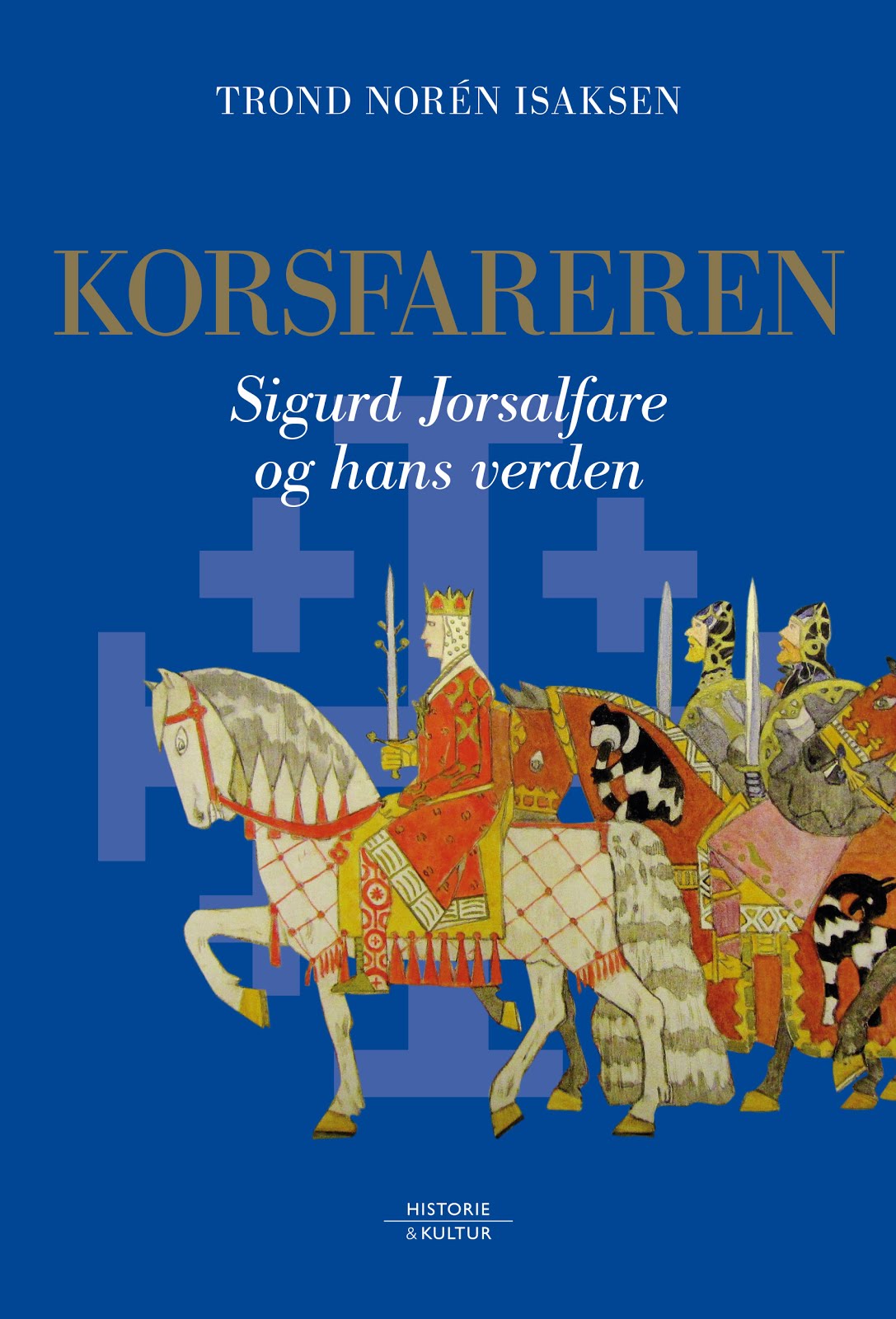 Just before Christmas Beijbom Books in Gothenburg published Karl XIV Johan – Det moderna Sveriges grundare by Olof Sjöström, a 69-year-old former banker and businessman. In his book the author wants to show what Carl XIV Johan did for Sweden and argues that he was the monarch who laid the foundation stones for modern Swedish society. It is a very interesting topic, but the book is a limited success.
Just before Christmas Beijbom Books in Gothenburg published Karl XIV Johan – Det moderna Sveriges grundare by Olof Sjöström, a 69-year-old former banker and businessman. In his book the author wants to show what Carl XIV Johan did for Sweden and argues that he was the monarch who laid the foundation stones for modern Swedish society. It is a very interesting topic, but the book is a limited success.It is quite badly composed, which causes many unnecessary repetitions – the events leading to Bernadotte’s election in 1810 are recounted in three different chapters. The book begins with the King’s death in 1844 before going back to look at his early life and career, his election to Crown Prince of Sweden in 1810, his arrival in Sweden, the situation in the country 200 years ago, Sweden’s role in the Napoleonic Wars and how the union with Norway came about.
In this the author makes a huge number of factual mistakes, such as stating that Bernadotte was 29 in 1789 and 32 in 1794 although he tells us on the very same page that he was born in 1763, that Joseph Bonaparte was married to Joséphine (rather than Julie) Clary, that the King had a constitutional veto in Norway (the absence of such a veto was the main reason for the power struggle between Carl Johan and the Norwegian Parliament, which lasted throughout most of his reign and which he eventually lost) and that the Norwegians elected Prince Oscar Viceroy in 1814 (something they neither did nor were permitted by the Constitution to do).
It is of great value that Sjöström stresses how Napoléon’s reign inspired Carl Johan’s reforms of Swedish society. Biographers tend to focus on the rivalry between the two men and the eventual rupture, but rarely do authors take into consideration the many similarities between them or how Carl Johan in many ways tried to emulate his former master. “The spirit of Napoléon the society builder would influence the development of Sweden for a long time”, Sjöström writes.
It is obvious that the author is more on home ground when it comes to finances than to political history. There are chapters dedicated to Carl Johan’s private finances, how he succeeded in paying off the Swedish national debt and his work to stabilise the three different currencies used in Sweden at the time.
Then we hear about the emergence of modern banks in Sweden before Sjöström returns to Carl Johan’s foreign policy, which he does not entirely understand, and then deals with the situation in Sweden at the end of Carl Johan’s reign. He stresses how the debts had been paid, the currency stabilised, an operational banking system brought about, the infrastructure and agriculture improved and a new foreign policy introduced, to which he adds emerging constitutional reforms. All this, Sjöström argues, make Carl XIV Johan one of Sweden’s greatest kings and the founder of the modern Swedish society.
But the problem is that the author’s account is incomplete and frequently wrong. He twice describes Carl Johan as a son of the revolution, but leaves out the fact that he gravitated towards political reaction as he became older, making him downright unpopular in Sweden at the end of his life. Sjöström on the contrary claims that he was very popular in his old age when his people realised what he had done for the country and were grateful for that.
His opposition to the free press is also downplayed, except when the author mentions the many closures of the newspaper Aftonbladet, which he ascribes to “the authorities” rather than to the King. We also get a very incomplete picture of Carl Johan and constitutional reforms, which he was in fact staunchly opposed to. Sjöström tells us that Carl Johan in Norway allowed “parliamentarianism to develop successively”, which is far from true.
The crucial relationship with Russia and the friendship with Alexander I is said to have been good and solid at all times, while the many ups and downs are ignored and Carl Johan’s balance act between Russia and Britain goes unmentioned.
It is also a problem that Sjöström frequently credits Carl Johan with achievements which were not really his. For instance he writes twice about the negotiations between Denmark and Norway over how the national debt should be divided after Norway broke away from the Danish kingdom in 1814. Sweden in Sjöström’s version “attempted” to stay out of it all, but “[e]ventually the parties reached an acceptable solution whereby the burdens were shared after Carl Johan had succeeded in talking down the Norwegian debt”. In fact the King forced Norway to accept the Danish demands unconditionally and Sweden did not pay one single penny, even though it was the King of Sweden who had concluded the agreement with Denmark without involving Norway at all.
Sjöström tells us that the first biography of Carl XIV Johan was written 100 years after his death, which is pure nonsense – biographies had started to appear already in his lifetime and a century after his death there were a large number of such books available in many languages. Rather it seems Sjöström has not read them – his bibliography lists the biographies by Kenne Fant (1994), Lars O. Lagerqvist (2005), Herman Lindqvist (2009), Alan Palmer (1990) and Alma Söderhjelm (1939), of which Lagerqvist’s is the only significant one. Torvald T:son Höjer’s three-volume official biography, which is the most informative and deals extensively with the issues Sjöström cover, is, incomprehensively, not on the list.
It is my feeling that this book would have been both better and more interesting if Olof Sjöström had restricted himself to the financial and economic issues which it seems he understands well and had not undermined his own book by including chapters on various other aspects where the factual mistakes and misunderstandings proliferate. Perhaps he should have written an article rather than an entire book.





No comments:
Post a Comment
Comments are welcome, but should be signed - preferably by a name, but an initial or a nick will also be accepted. Advertisements are not allowed. COMMENTS WHICH DO NOT COMPLY WITH THESE RULES WILL NOT BE PUBLISHED.